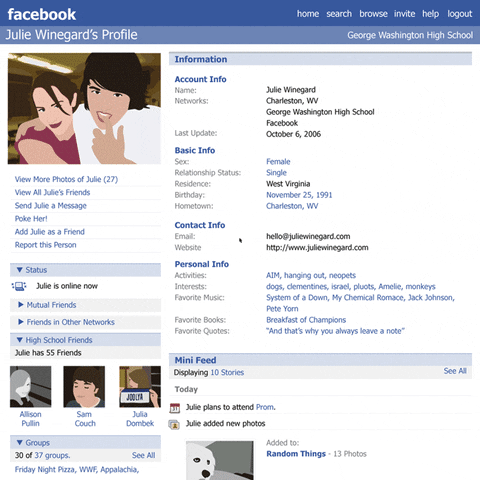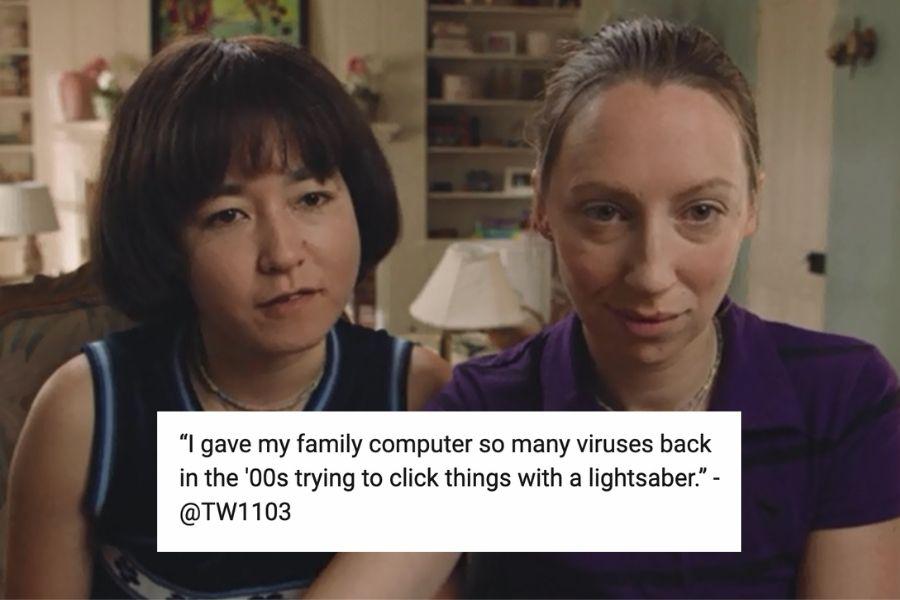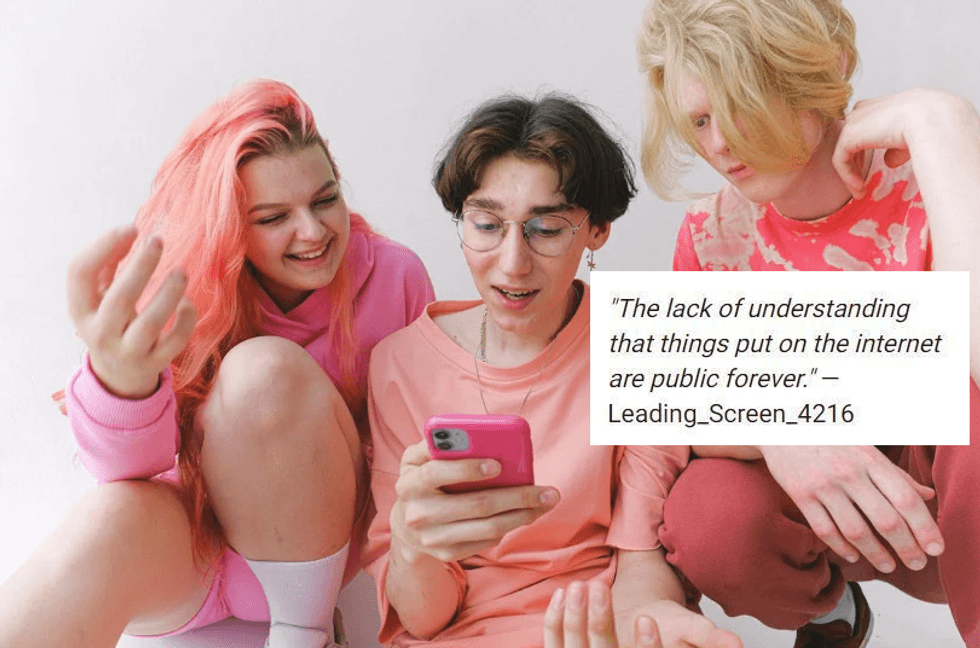As an elder millennial, I remember when the internet was completely uncharted territory. So many new things to discover and try out, with seemingly zero rules. The World Wide Web truly was the Wild Wild West, and we were its brave internet explorers.
With the ferocious speed at which information travels through social media today, we’ve become accustomed to internet trends simply coming and going. So much so that we’ve probably forgotten a few gems that were once considered the “it” thing.
Remember the unparalleled joys of making your Neopet happy? Or the instant self-esteem boost you’d get upon seeing that website hit counter go up on the bottom corner of your virtual masterpiece? (Remember, we didn’t have “likes” to lean on during this dark period.) These are just a few relics of a not-so-distant past—once cherished, but now buried in antiquity.
One Reddit user recently asked: “What’s something the internet was crazy about but is now forgotten?” and people’s answers were a wild nostalgia ride. Use this list for a stroll down memory lane, or to confound a Gen Z friend. Either way, it’s a bit of idle fun—something the internet will always be a good source for.
Without further ado, here are 9 of the weirdest internet trends no one remembers:
1. Downloading custom cursor effects for your computer
Ah yes, who wants to see a boring arrow move around their screen when they can pretend to wave fairy dust around? Or rainbows, or snowflakes, or bubbles, for that matter. There really was something magically cathartic about animated cursors. Sure they were riddled with bugs, but sometimes that’s the price you pay for a little whimsy, right?
“I gave my family computer so many viruses back in the ’00s trying to click things with a lightsaber.” –@TW1103
2. Pre-Google search engines

Wow, hard to imagine a time when googling wasn’t an actual word. Believe it or not, kids, it used to be anything goes when looking up obscure movie trivia or long lost recipes.
Each search engine site had its own personality—Alta Vista chose a no frills approach, Dogpile offered a (never funny) joke of the day, and Ask Jeeves featured a savvy valet based on a character in a novel series by P.G. Wodehouse, ready to quench all curiosities that came in the form of a question.
Many of these separate quirks were quite revolutionary and, though eventually swallowed up by Google’s widespread success, have clearly inspired much of its overall format. Sure, other search engines do still exist, but I think we can all agree that Google reigns supreme.
3. AOL Instant Messenger (AIM)
Hulu’s “PEN15,” which centers around two middle schoolers in the early 2000s, nailed everything about AOL chat rooms with accuracy—from the cringeworthy screen names, to the melodramatic away messages, to the obnoxious login sound that had a Pavlovian effect on teens, bringing their eyes involuntarily to the screen. It’s pure gold.
Of course, there are some aspects of AIM that might be best forgotten—primarily the dangerous way in which teenagers were easily exploited.
“I was 14 but playing a 17 year old because 17 was very “grown up” to me, but I didn’t feel it was enough of an age gap for the lie to be exposed.” –@KayleighJK
“I was 13 pretending I was 18 on AOL chat rooms. I was exposed to too much at a young age. Imagine if I said my actual age” –@Chickeneggsandlegs
4. Flash games

Flash games—often free, super easy to play, and normally only required Adobe Flash. According to Comic Book Resources (CBR), one flash game in particular called “Club Penguin” was so well loved that when it shut down in 2017, “thousands of players logged on for the game’s final moments, doing everything they could do in game before it was gone forever.”
5. Smart guestbooks

Pretty straightforward, and a pretty sweet way to connect with people around the world. Visitors from all over could digitally “sign” and leave a personal message, usually things like “Hi I’m so-and-so and I really enjoyed your website, was a pleasure to browse.” See now nice that was? Not exactly like the aggressive Yelp reviews we’ve become accustomed to.
6. GeoCities

Into science fiction and fantasy? Head on over to “Area51.” More of a sports fan? Click on “Colosseum.” GeoCities offered virtual neighborhoods based on specific interests, all on sites filled with flashy graphics and some hot new thing called GIFs. This was a time when enthusiasm for the internet as a community-building and self-expression space was at an all-time high, even if looking back the execution was a tad rudimentary.Though the days of GeoCities are gone, some remnants of its glory remain, like this.
7. Webrings

As MIC contributor Brittany Vincent so astutely put it, “Webrings are a forgotten antiquity of the past, a solution created to resolve a problem that no longer exists.” Back when websites were both expensive and limited—not to mention search engines hadn’t hit their stride—having a little box on the bottom of a site you were already on, one that revealed even more magical places you could visit based on the site you were currently on … well, that was the ultimate luxury.
“Oh man, if you stumbled upon* a web ring that you were interested in it was like gold. Bookmark! Not to be confused with StumbleUpon, that was later and also magical.” –DanAykroydFanClub
Which brings us to…
8. StumbleUpon

Back in the day, the internet wasn’t such an all-knowing entity feeding off of algorithms. Endless exploring through obscurity was part of the fun. No better example of this exists than StumbleUpon, where visitors would click a button and land somewhere else at complete random. It was a game of internet roulette. And it was thrilling.
9. Poking on Facebook

Sometimes, internet imitates life. This was the case with Facebook’s “poke” feature, where users could click a button to remind another user of their existence. Was it rather pointless? Yes. Was it intrusive? Also yes. Regardless, it was all the rage.
Like many of Facebook’s features, “pokes” could disappear in the barrage of notifications, which could result in less than ideal realizations.
“I had a friend that poked me and I never noticed the notification. He died. I now have this unreturned poke as a reminder that I’ll never be able to poke them back.” –@Klaus0225
Sure, today’s technology is faster, more efficient and far reaching, but we’ll always have a spot in our hearts for the early internet’s wonky charm. Sort of like those old yearbook photos…





























































